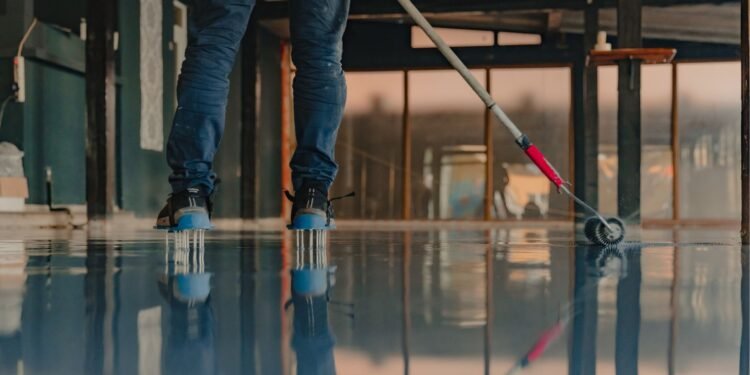When it comes to upgrading your garage, one of the most impactful changes you can make is to the flooring. Epoxy floors have surged in popularity due to their durability and sleek, professional appearance. However, the process of choosing and installing an epoxy floor involves several important considerations, especially when it comes to cost. This comprehensive guide will explore everything you need to know about garage epoxy floor costs, including factors that affect pricing, a detailed cost breakdown of materials, and the differences between doing it yourself and hiring professionals.
Introduction
A garage isn’t just a place to park cars; for many, it’s a workshop, a storage area, or even a leisure space. The flooring you choose needs to be tough enough to handle chemicals, oil spills, and heavy traffic. Epoxy flooring is renowned for its resilience, ease of maintenance, and aesthetic options, making it an excellent choice for garages. It provides a stain-resistant surface that can look good for years with minimal upkeep.
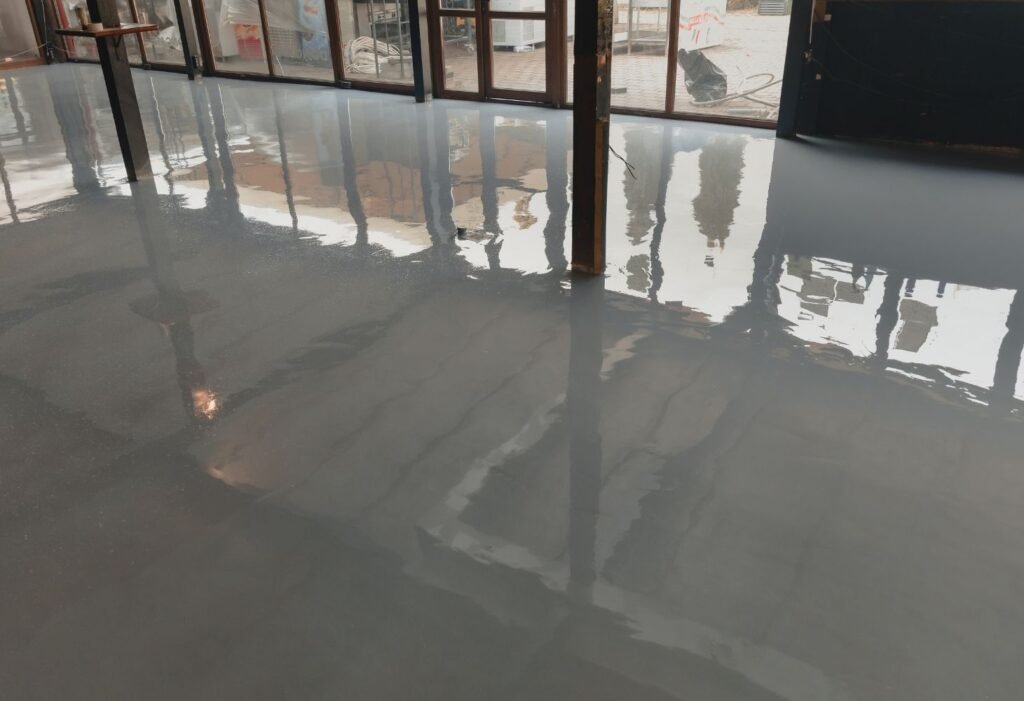
Factors Affecting Garage Epoxy Floor Cost
The cost of epoxy flooring for your garage depends on several key factors. The size of your garage is the primary factor, as materials and labor costs are calculated per square foot. The current condition of your garage floor also plays a crucial role; floors that require extensive prep work due to damage or stains will increase the overall cost. Additionally, the choice between epoxy and polyurea coatings—each with different costs and benefits—affects your budget. Another major consideration is whether to hire professionals or attempt a DIY installation, each choice bearing its own set of costs and benefits.
- Square Footage: The most straightforward factor is the size of your garage. Since epoxy flooring costs are generally calculated per square foot, larger garages will require a higher overall investment.
- Condition of the Existing Floor: The amount of preparation required before applying the epoxy significantly affects the cost. Floors with cracks, uneven surfaces, or previous coatings need extensive prep work, including repairs and possibly professional resurfacing.
- Type of Epoxy: Not all epoxy coatings are created equal. Standard epoxy is generally less expensive than specialized formulas with enhanced properties like UV resistance or extra durability for high traffic areas.
- DIY vs. Professional Installation: Deciding who will install the epoxy flooring has a major impact on your budget. DIY kits are available and can reduce costs significantly, but professional installation comes with the benefit of expertise and guarantees.
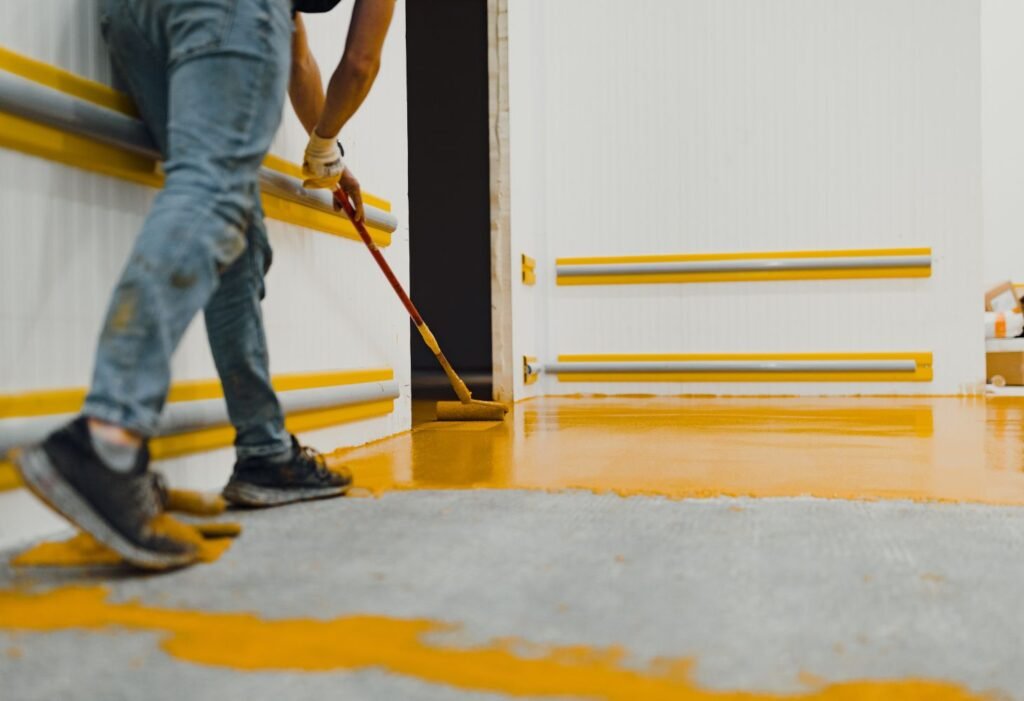
Cost Breakdown: Epoxy Flooring vs. Polyurea Coating
Understanding the pros and cons of epoxy and polyurea coatings is essential for making an informed decision. Epoxy is cost-effective and offers a hard-wearing, resistant finish. However, it can take several days to cure fully. On the other hand, polyurea is a more robust option with faster curing times and excellent durability but comes at a higher cost.
- Epoxy Flooring: Epoxy is relatively affordable, ranging from $3 to $12 per square foot, depending on the type and quality of the product. It is resistant to stains, grease, and chemicals, making it ideal for garages. However, it can be slippery when wet unless texturizing additives are used.
- Polyurea Coating: Polyurea is a more advanced option with a faster curing time and better durability against impacts and temperature fluctuations. It tends to be more expensive than epoxy, costing slightly higher per square foot, but its longevity and toughness can provide better value over time.
DIY vs. Professional Installation
For those considering a DIY project, epoxy kits provide an affordable solution with prices significantly lower than professional installation. However, the potential for costly mistakes is something to consider if you’re not experienced. Professional installation eliminates the worry of errors and ensures a high-quality finish but at a higher upfront cost. The benefits of hiring a professional include their expertise in handling complex issues like floor prep and precise application, ensuring a lasting finish.
- DIY Installation: A DIY epoxy kit can range from $50 to $600, depending on the quality and the size of your garage. While this route can save money, it requires careful preparation and application to avoid common problems such as bubbles and peeling.
- Professional Installation: Hiring a professional can cost between $1,200 and $6,000 for a typical two-car garage. The higher cost accounts for labor and the assurance that the job will be done correctly. Professionals can also handle unforeseen issues such as moisture problems and uneven floors, which might be daunting for DIY installers.
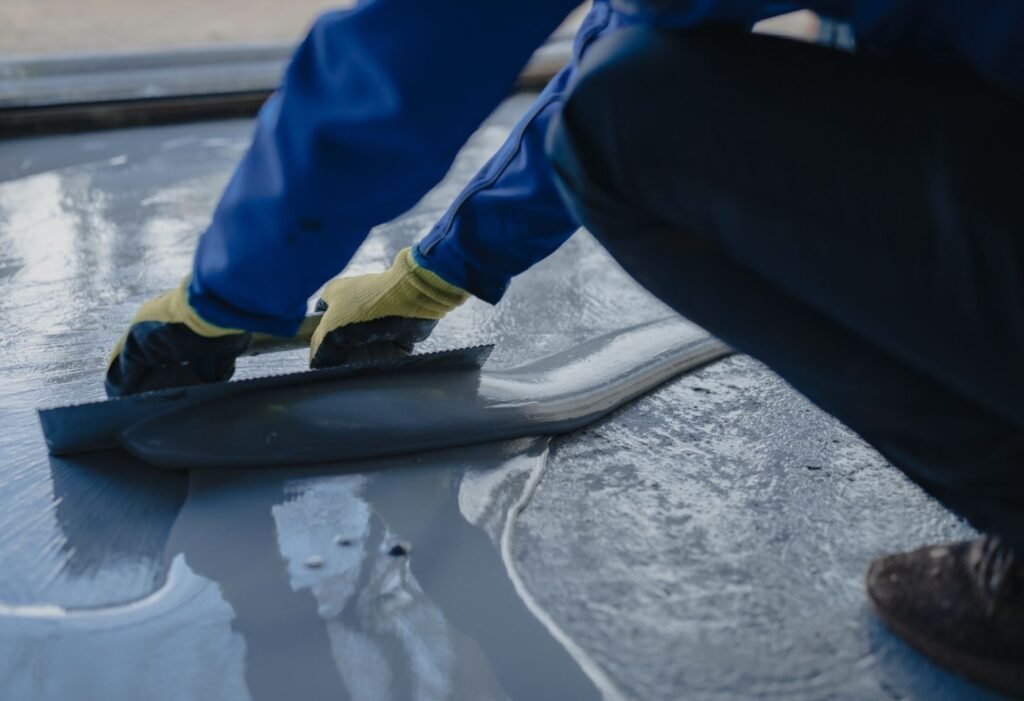
Garage Epoxy Floor Cost Estimates
To help you budget effectively, consider these average cost. When budgeting, consider all potential expenses to avoid surprises. Planning and shopping around for quotes can also help in keeping costs down:
- A two-car garage, which typically measures around 400-500 square feet, could cost anywhere from $1,200 to $3,000 when using standard epoxy. Specialized or high-grade materials, or extensive floor prep, could push these costs higher.
- For larger or more complex projects, such as a three-car garage or one requiring significant repairs, costs can escalate to $5,000 or more.
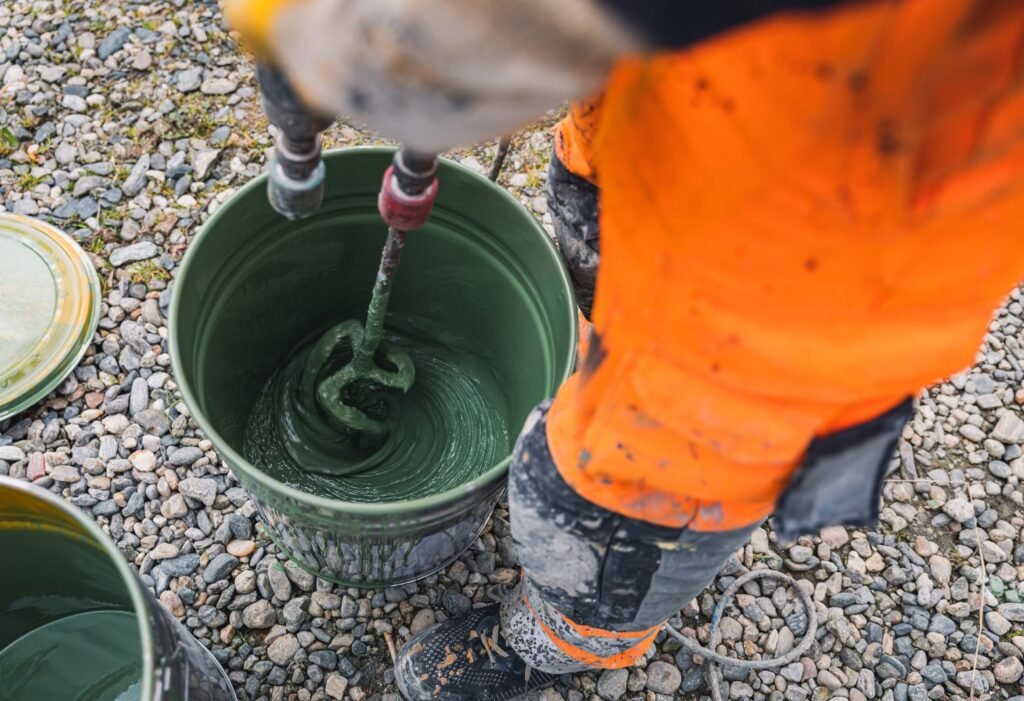
Additional Considerations
When planning for an epoxy garage floor, don’t forget to factor in the hidden costs:
- Preparation Supplies: Repair kits, cleaning solutions, and etching products may be needed to prepare your floor for epoxy coating.
- Tools: Application requires specific tools such as rollers, brushes, and perhaps a squeegee, which might need to be purchased or rented.
- Safety Equipment: Epoxy can be hazardous to work with, so protective gear like gloves, goggles, and respirators are essential.
Conclusion
Epoxy flooring can transform your garage into a clean, attractive, and durable space. While the upfront costs can be substantial, particularly for high-quality finishes or professional installation, the long-term benefits of having a hard-wearing, easy-to-clean floor can outweigh these initial expenses. By understanding the factors that influence the cost and being prepared for the entire scope of the project, you can make an informed decision that aligns with your needs and budget. Whether you choose to DIY or hire a professional, epoxy flooring is an investment in your home that pays dividends in both functionality and aesthetics.
How much does it cost to epoxy a 2-car garage floor?
Generally, the cost can range from $1,200 to $3,000 for a standard 2-car garage, depending on factors like surface preparation and epoxy quality.
What is the average cost per square foot for epoxy flooring?
Epoxy flooring costs typically range from $3 to $12 per square foot, with higher-end options like polyurea coating at the upper end of the spectrum.
Is polyurea garage floor coating more expensive than epoxy?
Yes, polyurea coating tends to be slightly more expensive than epoxy. However, it offers greater durability and faster curing times, which may justify the higher cost for some homeowners.
Can I save money by DIY epoxy garage floor installation?
DIY epoxy garage floor kits can save you money upfront, but improper installation can lead to costly repairs down the line. Consider your skill level and the complexity of the project before opting for a DIY approach.
What are the additional costs to consider when epoxying a garage floor?
Additional costs may include surface preparation materials, such as acid etching or grinding equipment, as well as any repairs needed for cracks or uneven surfaces. Additionally, factor in the cost of safety equipment and tools if you’re opting for a DIY installation.

